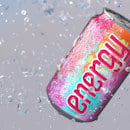
Does Fruit Plus Drugs Equal Disaster?
Did you know that more than 85 different medications are known to interact with grapefruit juice, and that approximately one-half of these interactions have the potential to cause serious adverse events? According to the Federal Drug Administration (FDA), the Mayo Clinic and other reputable sources, many fruit juices such as orange, apple, cranberry and especially grapefruit, have the ability to interact with many medications, causing untoward side effects.
Grapefruit juice irreversibly inhibits intestinal cytochrome P450 3A4 (CYP3A4) enzymes. Intestinal CYP3A4 binds to and oxidizes toxins and drug metabolites, so that they can be easily removed from the body. By binding to CYP3A4, grapefruit juice reduces the number of open binding sites on these enzymes, essentially causing less of the drug to be metabolized and more of the drug to enter the bloodstream and remain active in the body for a longer period of time (Tanzi, 2013). This creates the potential for toxic effects. However, since the amount of CYP3A4 enzyme in the intestine varies from one person to another, grapefruit juice may affect people differently when they take the same drug (FDA, 2014).
According to the FDA, grapefruit juice and fresh grapefruit can interfere with the action of some prescription drugs, as well as a few non-prescription drugs, and drinking grapefruit juice several hours before or several hours after taking a medication may also be dangerous.
The following medications are known to interact with grapefruit juice:
- Statin drugs to lower cholesterol, such as Zocor (simvastatin), Lipitor (atorvastatin) and Pravachol (pravastatin).
- Antihypertensive drugs, such as Nifediac and Afeditab (both nifedipine).
- Organ transplant rejection drugs, such as Sandimmune and Neoral (both cyclosporine).
- Anti-anxiety drugs, such as BuSpar (buspirone).
- Anti-arrhythmia drugs, such as Cordarone and Nexterone (both amiodarone).
- Antihistamines, such as Allegra (fexofenadine).
While scientists have known for several decades that grapefruit juice can cause a potentially toxic level of certain drugs in the body, more recent studies have found that some fruit juices can also have an opposite effect on the body, and can inadvertently decrease the absorption of certain drugs. This mechanism of action allows for the transportation of drugs within the body rather than their metabolism. Proteins in the body that act as drug transporters (Organic Anion-Transporting Polypeptides or OATP) help move a drug into cells for absorption. Certain substances in grapefruit juice block the action of OATP causing less of the drug to be absorbed (FDA, 2014). Fruit juices such as orange and apple appear to inhibit OATPs, which aid in drug absorption.
In summary, there are a variety of drugs that can negatively interact when paired with fruit or fruit juice. As a practice, patients should be warned about taking certain medication with fruit juice.
Click here to view educational tips for patients about potential drug interactions with fruit juices.
References:
Food and Drug Administration [FDA]. (2014). Grapefruit Juice and Medicine May Not Mix. Consumer Updates. Mayo Clinic (2014). Consumer Health. Grapefruit Juice & Prescription Medications. Tanzi, M. (2013). Juice interactions: What patients need to know. Pharmacist Today.




